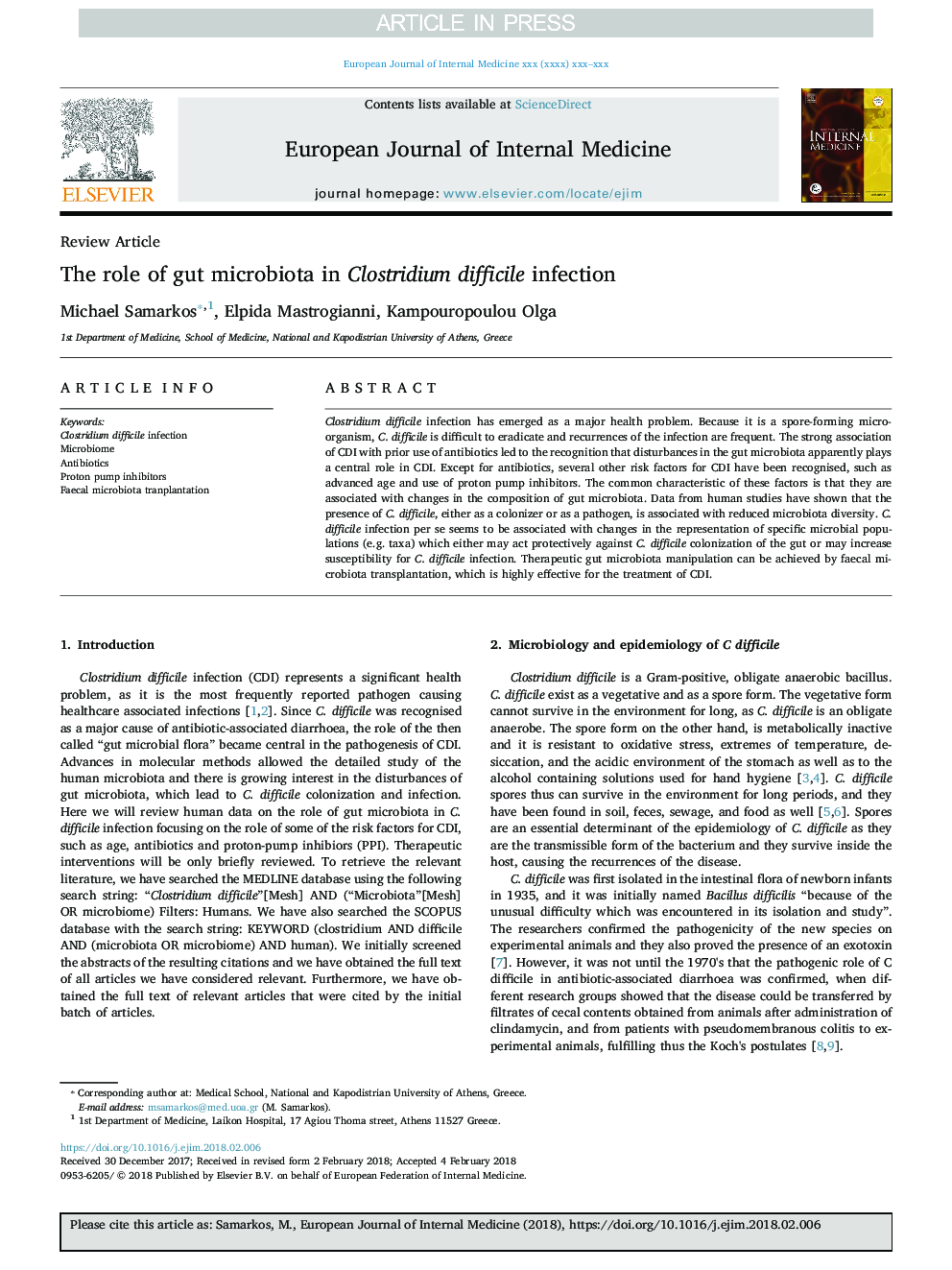| Article ID | Journal | Published Year | Pages | File Type |
|---|---|---|---|---|
| 8758037 | European Journal of Internal Medicine | 2018 | 5 Pages |
Abstract
Clostridium difficile infection has emerged as a major health problem. Because it is a spore-forming microorganism, C. difficile is difficult to eradicate and recurrences of the infection are frequent. The strong association of CDI with prior use of antibiotics led to the recognition that disturbances in the gut microbiota apparently plays a central role in CDI. Except for antibiotics, several other risk factors for CDI have been recognised, such as advanced age and use of proton pump inhibitors. The common characteristic of these factors is that they are associated with changes in the composition of gut microbiota. Data from human studies have shown that the presence of C. difficile, either as a colonizer or as a pathogen, is associated with reduced microbiota diversity. C. difficile infection per se seems to be associated with changes in the representation of specific microbial populations (e.g. taxa) which either may act protectively against C. difficile colonization of the gut or may increase susceptibility for C. difficile infection. Therapeutic gut microbiota manipulation can be achieved by faecal microbiota transplantation, which is highly effective for the treatment of CDI.
Related Topics
Health Sciences
Medicine and Dentistry
Medicine and Dentistry (General)
Authors
Michael Samarkos, Elpida Mastrogianni, Kampouropoulou Olga,
